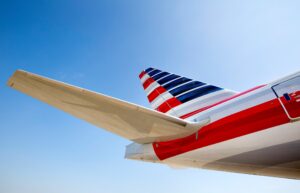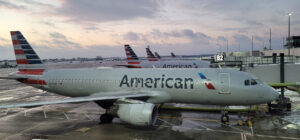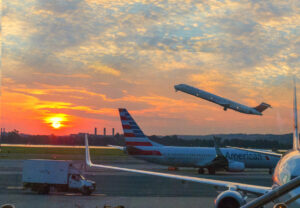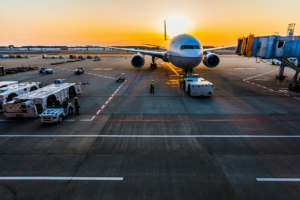Heat Wave
#1
Original Poster
Join Date: May 2008
Programs: Alaska MVP Gold
Posts: 22
Heat Wave
Happy Friday, everyone.
I read this on the NBC News website this morning, and thought I would post it here for comment:
"Commercial airlines are keeping tabs on mercury levels for any indicators that sultry conditions could throw flights off course, according to the AP."
Does anyone know what this means?
I read this on the NBC News website this morning, and thought I would post it here for comment:
"Commercial airlines are keeping tabs on mercury levels for any indicators that sultry conditions could throw flights off course, according to the AP."
Does anyone know what this means?
#2



Join Date: Feb 2005
Location: JNU
Programs: HH D, AS MM/MVPG for life/AL, Awesome Wipes VIP Club, NEXUS, Hertz 5-Star Gold, OptumRx Hall of Fame
Posts: 2,898
It's likely a thinly-veiled reference to density altitude.
#3
FlyerTalk Evangelist
Join Date: Jun 2001
Programs: DL 1 million, AA 1 mil, HH lapsed Diamond, Marriott Plat
Posts: 28,190
That is oddly written.
'Mercury levels' here really means temperatures. High air temps reduce lift generated by a wing; they also reduce thrust (air is less dense). It means that an aircraft that has the range to fly xxx-yyy with a full passenger load at 80 degrees F from a given runway length may lack the range to do so at 110 degrees F. Offload passengers (tough when load factors are typically >80%), cargo, or offload fuel and make a fuel stop on the way.
Range charts for aircraft are based on a 'standard day' and that is actually a pretty cool air temp - more like Seattle in May than Phoenix in July.
'Mercury levels' here really means temperatures. High air temps reduce lift generated by a wing; they also reduce thrust (air is less dense). It means that an aircraft that has the range to fly xxx-yyy with a full passenger load at 80 degrees F from a given runway length may lack the range to do so at 110 degrees F. Offload passengers (tough when load factors are typically >80%), cargo, or offload fuel and make a fuel stop on the way.
Range charts for aircraft are based on a 'standard day' and that is actually a pretty cool air temp - more like Seattle in May than Phoenix in July.
#4




Join Date: Apr 2011
Location: Treasure Coast, FL
Programs: DL Diamond, Marriott LT Plat, HH Diamond, Avis Preferred Plus, National Executive
Posts: 4,595
Here was the sentence after the one posted:
A wave of triple-digit heat forced several airlines to bring operations to a halt after Phoenix climbed to 122 degrees in June 1990.
This is mostly for the Desert SW. Many areas will be approaching 115-120 degrees (LAS, PHX, PSP).
A wave of triple-digit heat forced several airlines to bring operations to a halt after Phoenix climbed to 122 degrees in June 1990.
This is mostly for the Desert SW. Many areas will be approaching 115-120 degrees (LAS, PHX, PSP).
#5




Join Date: Sep 2005
Programs: Northwest, United
Posts: 3,292
Density altitude ("DA" in pilot lingo) affects many things, but the factor that is usually most critical is an aircraft's ability to get off a runway and climb. If it's very hot out, that can require a much longer takeoff roll to get off the ground, and dramatically reduced climb performance.
If the runway in use is short, or if there's high terrain (mountains) close-in around an airport, density altitude can be extremely dangerous due to degraded aircraft performance.
DA is actually one of the leading causes of fatal aircraft accidents in the US west, but those accidents almost always involve smaller airplanes that are more marginally powered. Commercial jets typically have plenty of performance to overcome DA, but if conditions are right (higher altitude, high temperatures, shorter runways, full loads) it can make enough difference to be dangerous.
If the runway in use is short, or if there's high terrain (mountains) close-in around an airport, density altitude can be extremely dangerous due to degraded aircraft performance.
DA is actually one of the leading causes of fatal aircraft accidents in the US west, but those accidents almost always involve smaller airplanes that are more marginally powered. Commercial jets typically have plenty of performance to overcome DA, but if conditions are right (higher altitude, high temperatures, shorter runways, full loads) it can make enough difference to be dangerous.
#6
In Memoriam, FlyerTalk Evangelist

Join Date: Nov 2002
Location: Southern California
Programs: DL: 3.8 MM, Marriott: Lifetime Titanium
Posts: 24,575
This is more apropos for the TravelBuzz forum so we're moving it there.
Thanks.....
______________________
Cholula
Alaska Airlines Mileage Plan Co-Moderator
Thanks.....
______________________
Cholula
Alaska Airlines Mileage Plan Co-Moderator
#7
A FlyerTalk Posting Legend




Join Date: Jul 2002
Location: MCI
Programs: AA Gold 1MM, AS MVP, UA Silver, WN A-List, Marriott LT Titanium, HH Diamond
Posts: 52,769
Heat waves would occasionally impact my regular DCA-MCI flights back in the '90's. US Airways 737, flying almost to the edge of the DCA perimeter at the time.
It usually took both high heat in DC plus some weather along the flight path to KC, but about once a summer my Friday afternoon flight would take on a light fuel load and then make a pit stop along the way.
To this day, this is the only reason I've ever been to SDF.
It usually took both high heat in DC plus some weather along the flight path to KC, but about once a summer my Friday afternoon flight would take on a light fuel load and then make a pit stop along the way.
To this day, this is the only reason I've ever been to SDF.
#8


Join Date: Oct 2006
Location: Long Beach, CA
Programs: AA PLTPRO, HH Diamond, IHG Plat, Marriott Plat, Hyatt Globalist
Posts: 3,588
I recall this being an issue a couple of times when I was flying out of Denver - in the old Stapleton days.
They needed volunteers to give up their seats as the heat and high altitude meant less lift (is that right?) and more fuel used on take-off and therefore, less range?
They needed volunteers to give up their seats as the heat and high altitude meant less lift (is that right?) and more fuel used on take-off and therefore, less range?
#10
Join Date: Jan 2008
Programs: AS MVPG, CO, NW(now DL), Flying Blue
Posts: 6,554
Heat as well as altitude can affect the lift. Hence the reason when they built the new DEN airport they took all that into consideration and then some. With their 16000 foot runway Id imagine they can take off if its 120. You would also find that most airports in the mideast, Africa, and other places where it gets well above 100 quite often also have 14 or 15000 foot runways. Not sure why they didnt plan for that at places like PHX
#11
Join Date: Nov 2006
Posts: 1,048
Here was the sentence after the one posted:
A wave of triple-digit heat forced several airlines to bring operations to a halt after Phoenix climbed to 122 degrees in June 1990.
This is mostly for the Desert SW. Many areas will be approaching 115-120 degrees (LAS, PHX, PSP).
A wave of triple-digit heat forced several airlines to bring operations to a halt after Phoenix climbed to 122 degrees in June 1990.
This is mostly for the Desert SW. Many areas will be approaching 115-120 degrees (LAS, PHX, PSP).
We cooked an egg on the sidewalk. Didn't eat it though

Last edited by SaigonCyclo; Jun 28, 2013 at 3:29 pm
#12
FlyerTalk Evangelist



Join Date: Nov 2009
Location: SEA — the REAL Washington; occasionally (but a lot less often than before) in the other Washington (DCA area)
Programs: DL PM 1.57MM; AS MVPG 100K (closing in on 0.5MM)
Posts: 22,027
flight crews on older jets like the 727 that don't have digital flight decks have to use the paper WAT (Weight/Altitude/Temp) charts in the flight manuals to determine takeoff distances and speeds ... the WAT tops out at 120F, and while it was legal for the crew to interpolate between lower temps, it was not legal to extrapolate beyond the printed limit
DL 1797, PHX-LAX, 27 Jun 1990
DL 1797, PHX-LAX, 27 Jun 1990
#14
Join Date: Feb 2001
Location: Rio Rancho, NM - USA
Programs: DL, UA, WN, Amtrak, Hyatt, Accor
Posts: 1,793
Yes, as Cyclo reported above, that day it reached 120 in Phoenix the airport was closed for a while. I believe that's the upper operating limits on commercial aircraft. I lived in PHX at the time, but was at my company's HQ in Silicon Valley that day. I remember phoning my family and telling them, "Don't go outside."
#15
Join Date: Nov 2006
Posts: 1,048
Yes, as Cyclo reported above, that day it reached 120 in Phoenix the airport was closed for a while. I believe that's the upper operating limits on commercial aircraft. I lived in PHX at the time, but was at my company's HQ in Silicon Valley that day. I remember phoning my family and telling them, "Don't go outside."




















